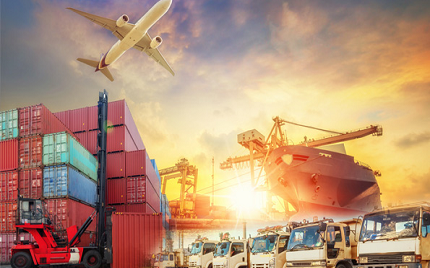The World Bank has been instrumental in transforming the National Postal Services of several countries globally by critically analysing their services and the performances of these Establishments, since 1997. Seeing this development, the Indian Government too sought the help of the World Bank in order to bring about a reform in he Traditional Industry. The World Bank duly obliged, developing a report titled ‘Transforming a Postal Infrastructure’ The potential that laid untapped in the
Organization was noticed immediately by the World Bank, which then set up a team to investigate and come up with innovative services and future plans for India Post in the changing landscape.
The World Bank had already worked with a number of Postal Departments, mostly in the Developing economies and this experience came in handy while analysing India Post. The report identifies the heavy rural presence of India Post early and devices plans to exploit the potential. Despite being developed 20 years ago, the report clearly identifies the shifting trend towards electronic communication and the need for India Posts physical infrastructure to be diverted to other services.
The report shows a clear trend in the decrease in Personal mailing, which had been the Primary service provided by the Posts across the world. It also identifies the increase in the Private courier services, especially in the urban spaces. With stiff competition on one end, having a uniform tariff structure in order to ensure better connectivity being the social objective of the Post, the revenue of India Post has been falling significantly, a similar picture seen in most of the developing markets in the World. In contrast, the Report shows how the fortunes of the Posts in developed economies improved with drastic changes being brought into the Postal Departments. Even an increase in the number of mails has been witnessed in these economies with a major share being made up of direct marketing and commercial mails. But it is the additional services outside the traditional mailing that has actually brought about the change in fortune in the declining future for the Postal Departments.
These additional services were of two categories: e-services and the then emerging e-commerce services. Several Postal departments had adopted e-services and other information and bill collections for the government establishments such as electricity, water boards, insurance and passport agencies. Other information on government services were also made available at the Kiosks/counters at the Post Offices for people to approach. The cost for these services were in turn borne by the respective agencies. The trust and reliability of the Postal networks played a huge part in these with companies and government agencies even trusting the Postal departments in the associated financial transactions. While these services were temporary, considering that sooner or later internet was going to be available for everyone, some of these services such as passport forms, bill collections are running successfully even now.
However, it is the other category, the e-commerce opportunities, which became a game changer. Postal departments across the world have one thing in common- physical access to all parts of a country. This advantage combined with the large network has been leveraged to create an e-commerce delivery services, for several e-commerce platforms. Essentially, this makes these postal departments the pioneer in 3PL. Additionally, these Posts were able to deal with returns too, with the large presence, something the e-commerce providers struggle even today. Coupled with a reliable internet platform to deal with the orders and deliveries, their services were hard to beat.
India Post has been provided similar suggestions to improve its performance as well as utilize its resources more efficiently. The necessity and political pressure on India Post to facilitate uniform tariffs country wide were taken into account while putting forth a framework and structural overhaul. While retaining monopoly in certain key areas, at least for the near future was essential, establishing a financial autonomy was an important suggestion as it would free up investments as well as change the stance towards private partnering in several aspects. The bureaucratic management and the low skill level of the workforce also came under the scanner with the report recommending a liberalization of India Post’s services as well as a skill upgrade. With this and the impending improvement in the infrastructure, India Post, the report said, shall be ready for the changes that were happening in similar establishments. The legal threats and slow growth in literacy are also mentioned. Overall, the suggestions broadly involved the following- Improving the Postal Financial services (POSB), including e-governance services at the Post offices and incorporating e-commerce and other related services which can leverage the large connectivity and the physical presence of India Post.
These recommendations which were made more than 15 years ago, and yet, the Indian government and India Post have been slow to make the changes both due to a lack of vision as well as the reluctance to change India Post from a government agency focussed on offering cheap services. Improvements in terms of skill upgrade in workforce, services offered and the experiments in private partnerships have been made with the biggest changes being in the infrastructure. However, the potential identified nearly two decades ago remains largely untapped. With ever increasing needs for logistics and connectivity, it is high time that these resources are put into use.










